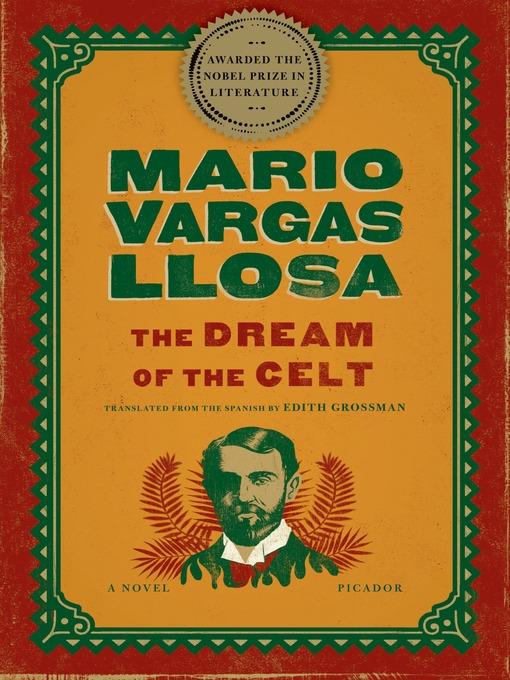
The Dream of the Celt
A Novel
- اطلاعات
- نقد و بررسی
- دیدگاه کاربران
نقد و بررسی

April 30, 2012
A Nobel Prize for Literature winner (in 2010) and one-time Peruvian presidential candidate, Vargas Llosa chronicles the life of Roger Casement, an Irish patriot and human rights activist, or “specialist in atrocities,” who was executed by the British in 1916 after the Easter Rising, which heralded the beginning of Irish independence. This is a meticulously researched book about a deeply complex man; Vargas Llosa’s admirable powers as a writer of fiction are apparent when he slows the pace of the narrative to allow access to Casement’s thoughts as he languishes in prison, waiting to hear whether his stay of execution has been granted. Vargas Llosa (The Bad Girl) is at his best writing as a novelist rather than biographer, but the unnecessarily complex narrative structure in which Casement’s life story unfolds at a galloping pace achieves neither the best of biography nor the best of fiction. Readers will wish that the book was either one or the other. Agent: The Carmen Balcells Agency.

Starred review from June 15, 2012
The Celt in question is Sir Roger Casement, who advocated on behalf of oppressed natives of the Congo and of Amazonia, but when he turns his attention to the Irish Troubles in 1916, the British feel he's gone too far, so he's caught, tried and executed. Originally published in 2010 and now lyrically translated, the novel focuses on the three major stages in Casement's life. As a young man he travels to the Congo, and while at first he's enamored with the European "mission," he soon has a Conrad-ian epiphany about the exploitation of rubber workers, who are brutalized beyond belief. (Conrad, in fact, briefly appears in the novel.) Casement's report about this exploitation garners him much acclaim in England. Next he turns his compassionate vision toward Amazonia, that section of Peru in which the indigenous peoples are once again being savagely misused by a multinational corporation--in this case the Peruvian Amazon Company, whose board, Casement discovers, comprises a number of prominent Englishmen, but in his role of British consul he courageously speaks out against the atrocities he finds there and once again publishes a devastating report; this time his findings ironically lead to his being knighted by the British. In the final phase of his life--he died at the tragically young age of 51--he supports independence for his native Ireland, naively working with the Germans during World War I against an England he now hates. At the Easter Rising he's caught and four months later is executed at Pentonville Prison in London. Although politically and morally committed to his causes, Casement feels poor in love, for his "relationships" consist solely of fleeting and furtive homosexual liaisons. Vargas Llosa speculates that the so-called Black Diaries Casement left are authentic but that he uses them to record sexual fantasies as much as sexual reality. A dazzling novel of great intensity and power.
COPYRIGHT(2012) Kirkus Reviews, ALL RIGHTS RESERVED.

January 1, 2012
A surprise subject from Nobel prize winner Vargas Llosa: Irish nationalist Robert Casement, who in 1916 was hanged by the British government for treason. Casement had fought to improve the lives of oppressed people worldwide, but when he began highlighting injustices closer to home, his fate was sealed. Obviously for all readers.
Copyright 2012 Library Journal, LLC Used with permission.

Starred review from April 15, 2012
The Peruvian Nobel laureate is an aggressive yet elegant writer, unafraid of confronting big social and political issues and complex historical figures and corralling these potent forces into wide-screen novels that never fail to leave readers slammed against the wall in awe and admiration. In his new novel, he has taken from the pages of history a quiet, sober, reflective Irishman in the British diplomatic service. But through his great humanitarian work, Roger Casement spoke loudly about colonial abuse of native peoples in the Congo and Peru, for which he was knighted by the British king in 1911. Startlingly, five years later, he was executed for treason by the same king's government. This seeming disparity, the transition from hero to criminal, is the great drama of Casement's life, rendered by Vargas Llosa with a wondrous mixture of factual accuracy and responsible imagining. Casement's evolution from believing in the colonial system to abhorring it, and then carrying over his newfound and profound hatred of oppression to an intense and ultimately fatal bid to wrest Ireland's home rule from Britain, is a trajectory the author follows with a dynamic richness of detail that leaves the novel a sublime example of historical fiction of the highest order and of literature in its maximum effectiveness. High-Demand Back Story: Prepub buzz announces this as one of the South American master's finest efforts, and literary fiction readers will want to read and discuss.(Reprinted with permission of Booklist, copyright 2012, American Library Association.)




دیدگاه کاربران